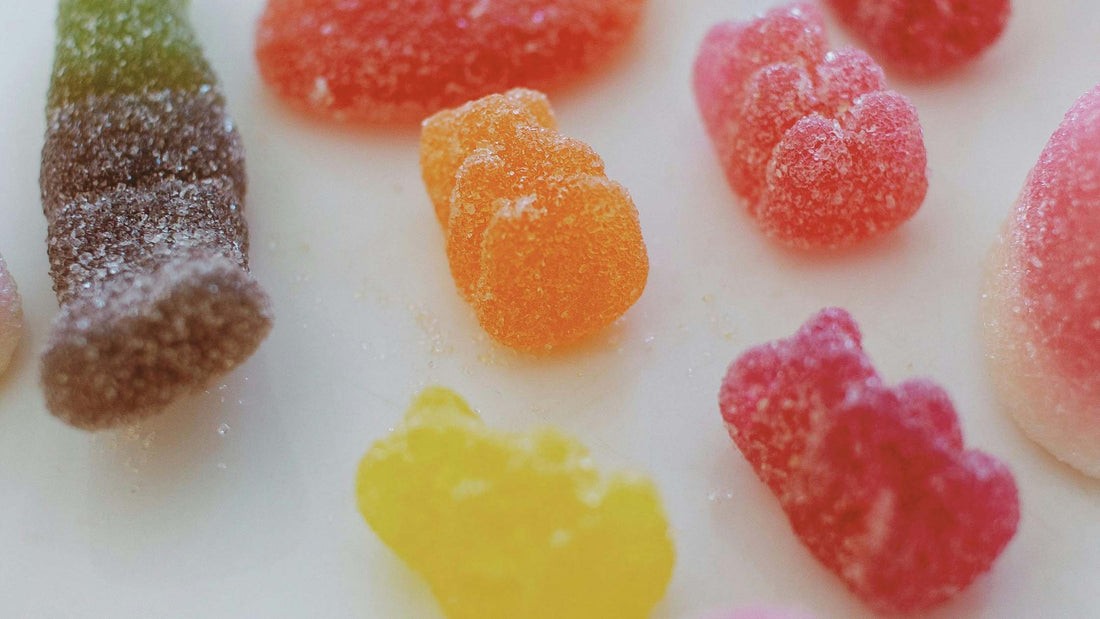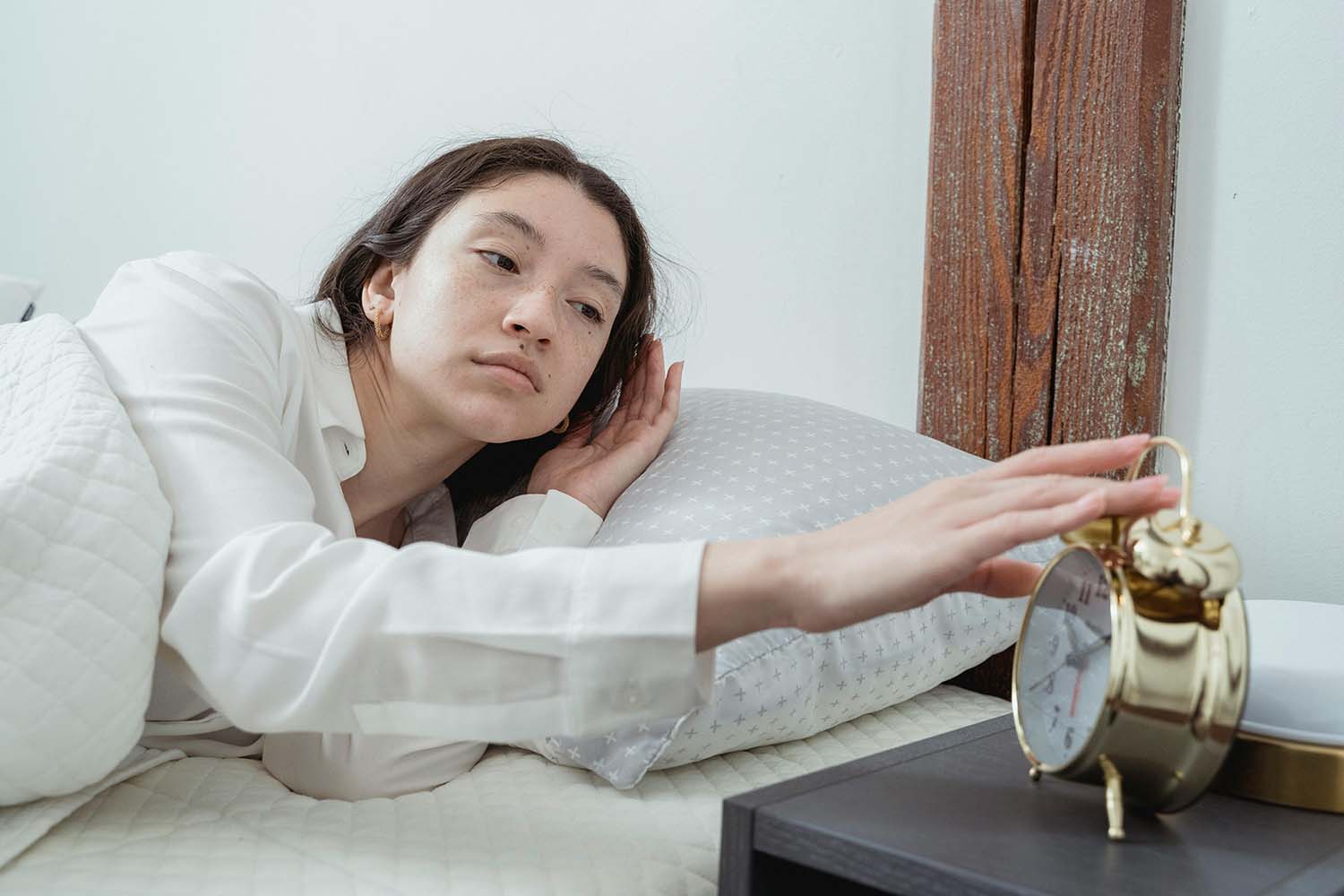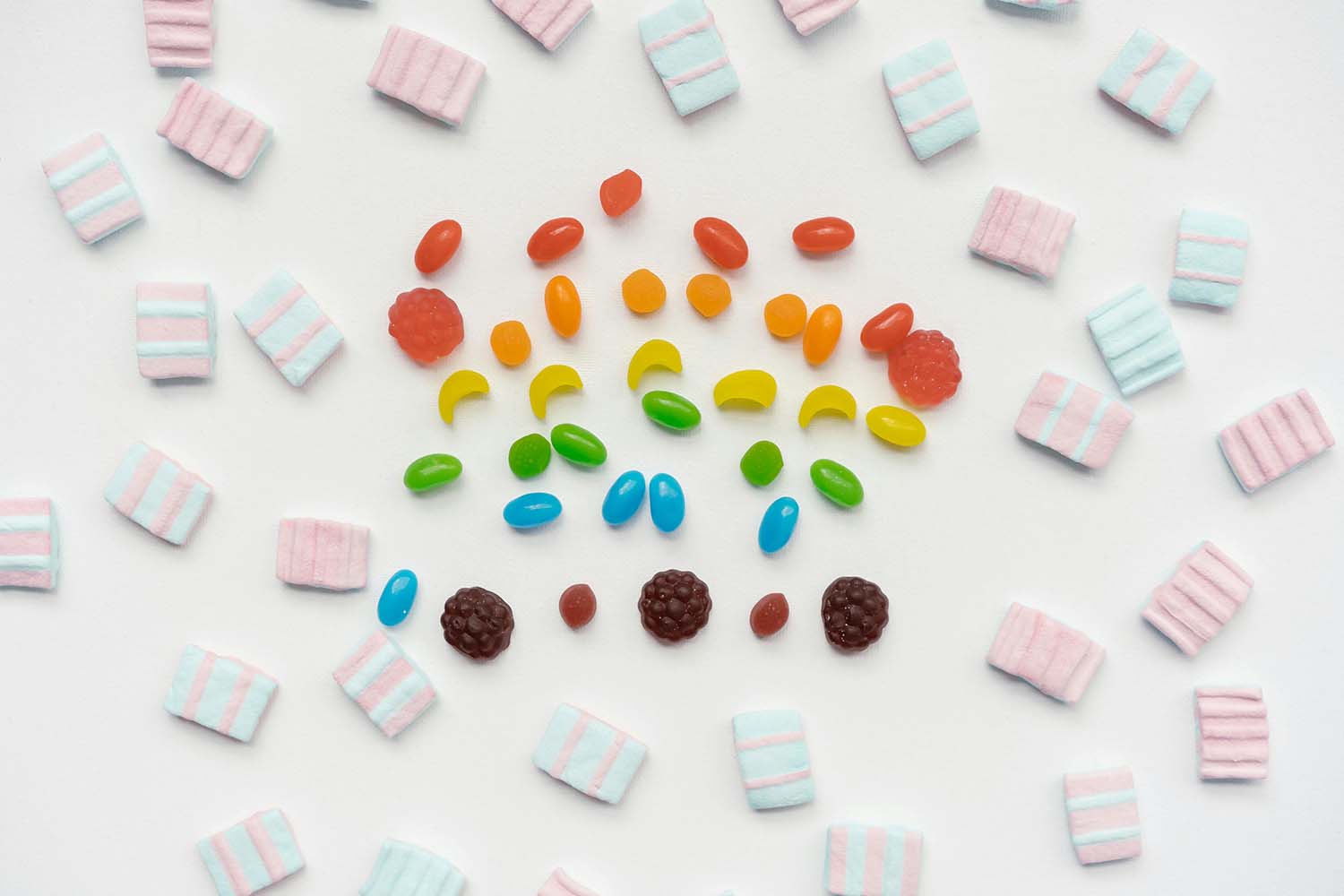
Do Melatonin Gummies Work As A Sleep Aid?
Do melatonin gummies work? Yes, but not like a sleeping pill. These chewable supplements help signal to your body that it’s time to sleep, making it easier to drift off naturally and wake up refreshed.
If sleep is regularly elusive or you suffer from a sleep disorder, you’ve likely tried a number of different options to get you to dreamland. But if nothing works, melatonin gummies might help you get the restful sleep you need.
Melatonin gummies, like MELO Sleep Gummies, contain melatonin and sleep-supporting ingredients like lemon balm and cherry extracts. Taken before bed, melatonin gummies may help you fall asleep faster and wake up without grogginess, so you feel truly rested.
At a glance:
How Do Melatonin Gummies Work?

Melatonin gummies work by supplementing the melatonin your body naturally produces to help you fall asleep. Normally, the pineal gland in your brain releases melatonin when it gets dark, signaling that it’s time to rest. Levels peak in the early morning to keep you asleep and then drop around sunrise, regulating your circadian rhythm.
Because melatonin is triggered by darkness, you might feel drowsy during a power outage or in a dim movie theater. But for some people, even complete darkness isn’t enough to bring on sleep.
So what do melatonin gummies do? Essentially, these gummy supplements are like blackout curtains for your brain. The extra melatonin in your system can help you fall asleep faster, so it’s especially suited for people who have difficulty falling asleep, staying asleep, or suffer from sleep disorders like insomnia.
How Quickly Does Melatonin Work?

The time it takes for melatonin gummies to kick in depends on the brand and dosage. MELO Sleep gummies, for example, can start working in as little as 15 minutes, while other options may take an hour or more.
To find the right timing for you, track when you take a gummy and how long it takes to feel sleepy. This way, you can fit it into your bedtime routine for a smooth transition to sleep.
Each MELO Sleep gummy contains 2 mg of melatonin, with a recommended dose of 4 mg (two gummies). To make it easy to remember, keep them by your bedside if you wind down with TV or a book, or store them with your skincare products if you prefer a structured nighttime routine.
Melatonin Gummies vs. Pills

If you’re struggling to get a good night’s sleep and your days feeling exhausted and irritable, you might consider taking a sleeping pill. Not so fast.
Prescription sedatives like Trazodone and Ativan are stronger than melatonin supplements and can leave you feeling groggy in the morning. You could also experience some nasty side effects in the morning after, like feeling hungover, unbalanced, or dizzy. Other side effects can include dry mouth, headaches, and digestive issues - not a great way to start your day. Worse, some can be habit-forming, making them less than ideal for long-term use.
Melatonin supplements support your natural sleep/wake cycle, are safer than sleeping pills because they only contain natural ingredients, and leave you feeling refreshed when you wake up.
How to Choose the Right Melatonin Gummy

If you’re ready to try a melatonin gummy, your next step is to find one that you like and that works for you. More importantly, you need to find melatonin gummies that are safe to consume.
One study reported that some melatonin gummies contain higher levels of the supplement than what is safe to consume or what was advertised on the label — some containing up to 347% more. That’s why it’s important to choose a trusted brand with accurate labeling and high-quality ingredients. Below are some trusted melatonin gummy options to consider:
If you’re looking for a strong dose, Nature’s Nutrition’s gummies offer 6 mg of melatonin per gummy — three times the amount in a single MELO gummy. They’re made for those who need a more potent sleep aid without resorting to traditional sleeping pills.
However, higher doses of melatonin aren’t always better. Studies suggest that excessive melatonin can lead to grogginess, vivid dreams, and even disrupt your natural sleep cycle over time. If you prefer a safer, adjustable dose, MELO’s 2 mg per gummy allows for more flexibility.
For plant-based and environmentally-conscious buyers, Future Kind +’s vegan melatonin gummies are a more sustainable option. While MELO Sleep Gummies are also vegan, Future Kind + focuses more on ethical sourcing. You’ll sleep well knowing your need for sleep has not compromised your values or your lifestyle.
Naturally Vitality Calm Sleep offers more than just melatonin, incorporating other calming ingredients to aid relaxation. Unlike MELO, where melatonin is the key ingredient, these gummies treat melatonin as more of a bonus. If you’re looking for a straightforward melatonin gummy with a reliable, low-dose formula, MELO might be the better choice.
If you’re looking for gummies that are vegan, deliciously fruity flavored, safer than sleeping pills, and made with natural ingredients, try MELO Sleep Gummies. They are non-addictive, low in sugar, and promote deep sleep without the side effects of other sedatives. They’re also third-party tested and contain only 2 mg of melatonin, so you know you’re getting what is on the label, and can comfortably experiment with the dosage to find what works for you.
Who Shouldn’t Take Melatonin Gummies?

While melatonin is a natural hormone, it’s not for everyone. Research on its long-term safety is still limited, so some people should avoid taking it.
Pregnant women and breastfeeding women should be cautious with melatonin supplements. Because it’s a hormone, it could affect fetal development or transfer to your baby through breast milk. If you’re experiencing sleep disturbances during pregnancy or postpartum, consult your doctor for safer FDA-approved alternatives or prescription medications.
People with autoimmune disorders, depression, diabetes, or seizure disorders should also check with a medical professional before taking a melatonin supplement. It may interact with other medications, leading to undesirable or counteractive side effects.
What about kids? Since our bodies naturally produce melatonin, parents may assume that giving their kids a gummy before bed is safe. Unfortunately, commercial doses may be too strong, especially for children under 2. If you’re considering melatonin for your child, talk to your pediatrician about safe dosages and brands. Some options, like Nutra Champs for teens and Lunakai Kids (1 mg per gummy), are specifically developed for younger users.
Melatonin gummies look and taste like candy, so keep them in a secured medicine cabinet or on a high shelf that children can’t reach. The last thing you need is your little one sneaking a handful of sleepy gummies.
Are Melatonin Gummies the Answer to Sleep Problems?

Melatonin gummies may be an effective way to improve sleep because they don’t work like traditional sleeping pills. Instead of forcing you into unconsciousness, melatonin helps regulate your natural sleep cycle, making it easier to fall asleep and wake up without feeling groggy.
But, it’s important to note that Melatonin isn’t FDA-approved for treating sleep issues, so it’s always a good idea to check with your doctor before taking it, especially if you're pregnant, nursing, have a medical condition, or take other medications.
It’s equally important to choose your melatonin gummy brand carefully. Some supplement brands contain unregulated doses or unnecessary additives. As for our MELO Sleep gummies, they’re third-party tested for quality, contain a gentle, adjustable dose, and come in delicious flavors that make taking them a treat rather than a chore.
Don't let another sleepless night go by — try MELO Sleep Gummies to experience the difference for yourself.
FAQs
Can Melatonin Gummies Help With Insomnia?
Yes, melatonin gummies can be an effective aid for people who have trouble falling asleep or staying asleep. Melatonin helps regulate your circadian rhythm, making it easier to drift off naturally. However, if you have chronic insomnia, it's best to consult a healthcare professional for a personalized approach. Your doctor may prescribe melatonin gummies with a higher dosage to make sure you stay asleep for longer or offer other melatonin supplement alternatives.
Will Melatonin Gummies Help Me Stay Asleep for Longer?
Melatonin primarily helps with falling asleep rather than staying asleep. If you find yourself waking up frequently, you may benefit from other sleep-supporting ingredients like magnesium or L-theanine, which help promote relaxation and deeper sleep. That being said, some people have found it easier to go back to sleep if they wake up in the middle of the night, due to their melatonin gummies.
Why Doesn’t Melatonin Work for Me?
If melatonin gummies are not helping you fall asleep, several factors may be to blame, including incorrect timing, improper dosage, or disruptions in your sleep environment.
If melatonin doesn't seem to work for you, try adjusting when you take it, ensuring your bedroom is dark and cool, and limiting screen time before bed. If sleep issues persist, consult a doctor to explore other potential causes and solutions.
Can I Get Addicted to Melatonin Gummies?
In short, no. Melatonin gummies are not considered addictive because melatonin is a hormone that your body naturally produces. Unlike sleeping pills or sedatives, melatonin doesn’t create dependence, withdrawal symptoms, or tolerance (where you need higher doses over time).
That said, some people may feel like they "need" melatonin to fall asleep, which is more of a psychological reliance than a physical addiction. If you use melatonin gummies regularly, your body might produce less natural melatonin, but this effect is usually reversible if you stop taking them.
Are There Foods or Drinks I Should Avoid While Taking Melatonin?
Yes, caffeinated drinks like coffee, tea, fizzy drinks, or energy drinks can cancel out the effects of melatonin. Drinking alcohol while taking a melatonin supplement should also be avoided because it changes how the supplement works in your body.

Leave a comment